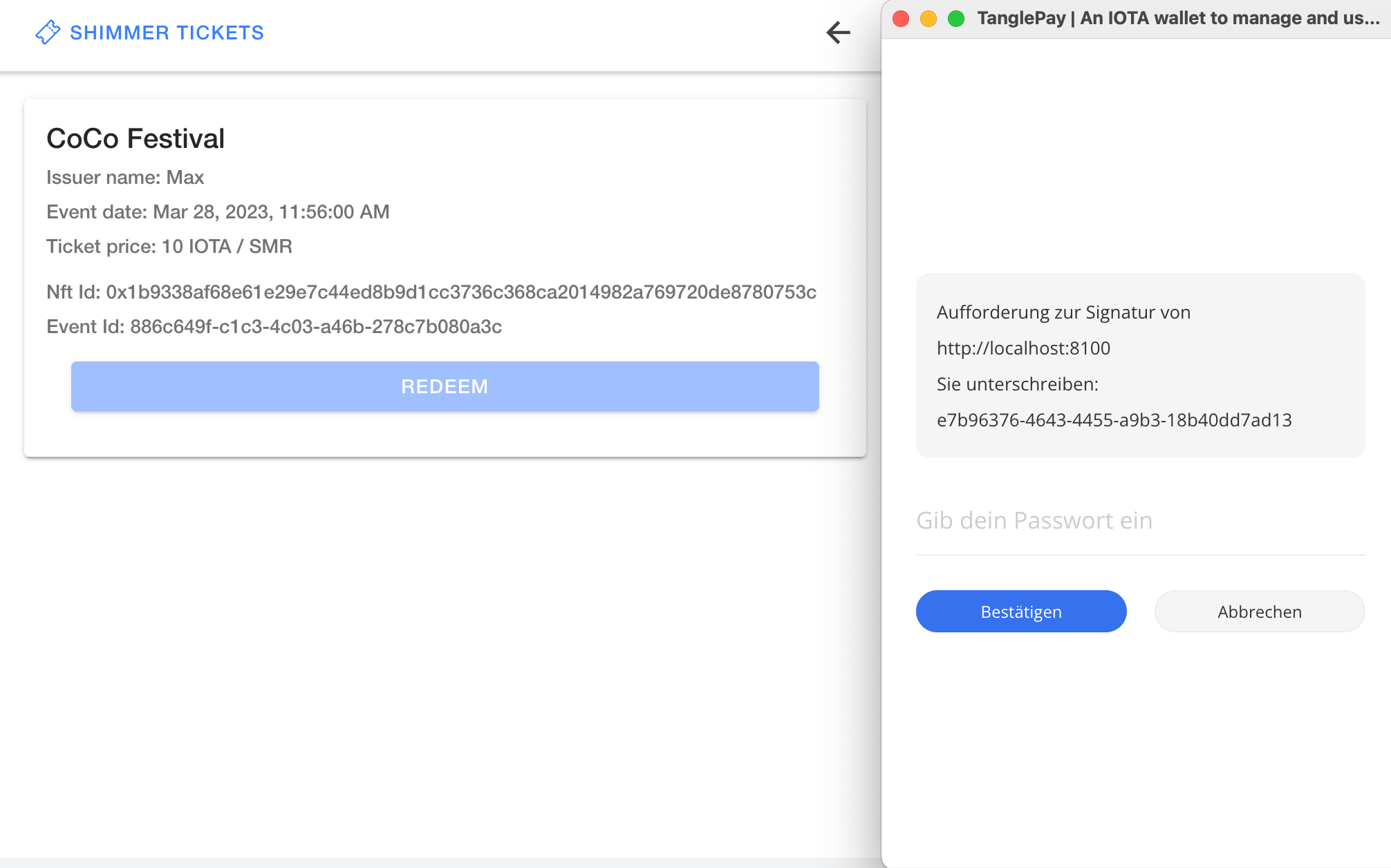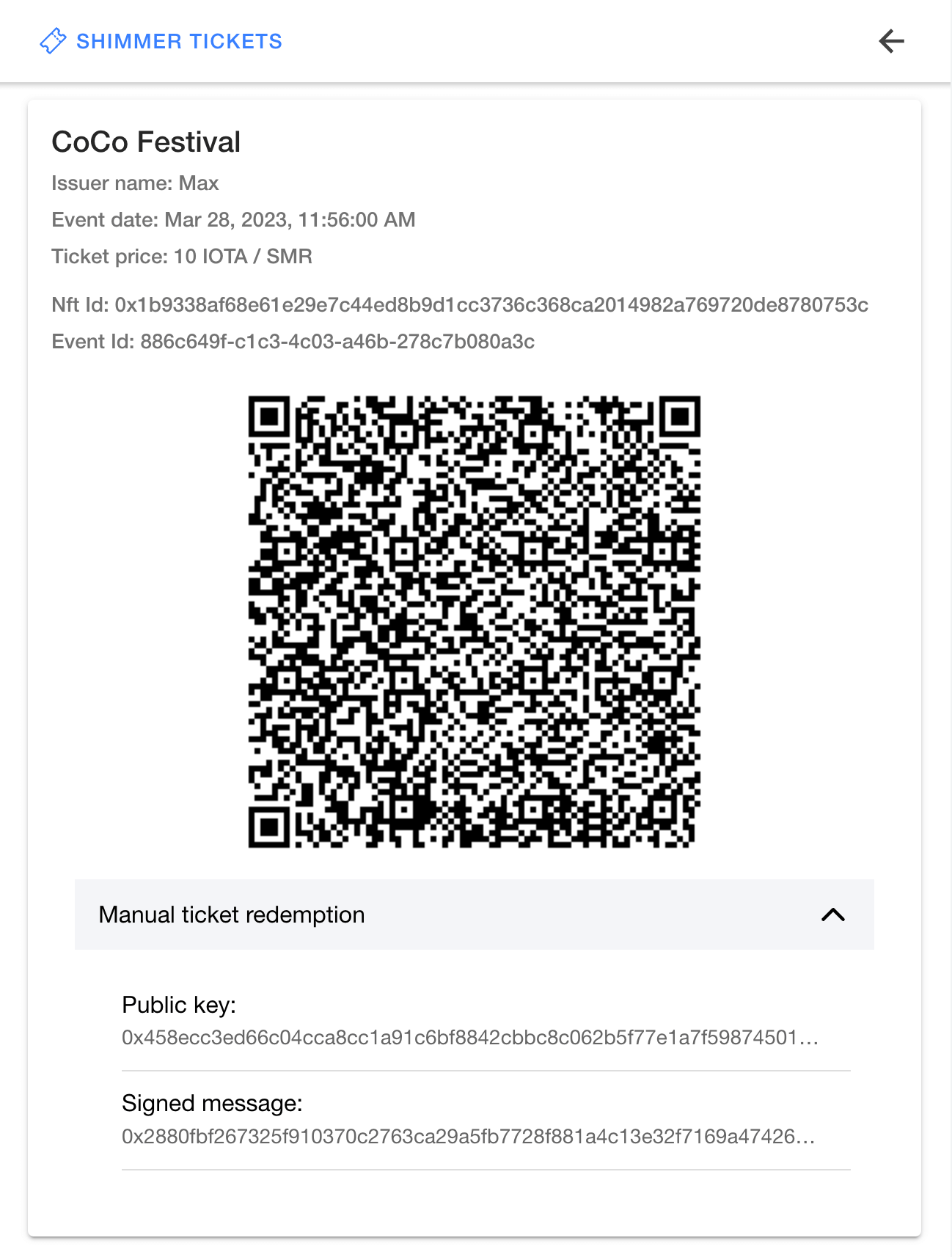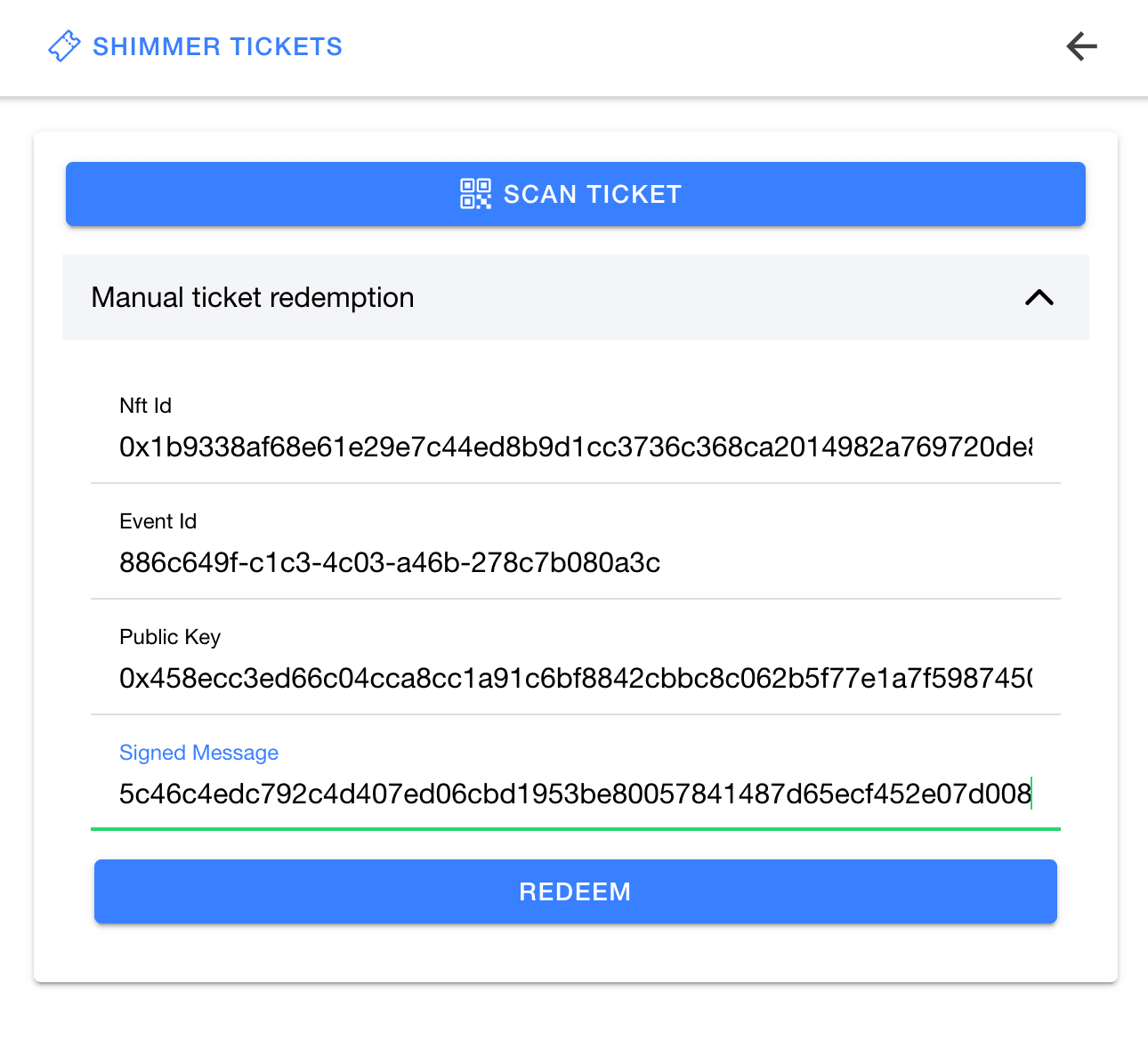Ever been annoyed by high fees and restrictive conditions from ticket monopolists like Ticketmaster? Worry no more! This blog post outlines a project that proposes a new, decentralised approach to ticketing, designed to create a fairer experience and offer an innovative perspective on the ticketing industry.
The Magic Behind the Curtain: IOTA’s Shimmer Network
The project is built upon IOTA’s Shimmer Network, a distributed ledger technology that allows the creation and transfer of non-fungible tokens (NFTs). In this case, NFTs are used to represent unique, non-exchangeable digital tickets. The best part? Shimmer offers free transactions and built-in royalties for NFTs, which means artists and ticket creators are automatically involved in the sales of their digital objects.
The Dream Team: IPFS-based OrbitDB, NestJS, and Angular
The project utilizes an IPFS-based OrbitDB for data storage, which provides a decentralized, distributed database solution that ensures scalability and robustness. NestJS, a modern and scalable backend framework, and Angular, a widely used frontend framework, help create a user-friendly and reactive web application that connects with the Shimmer Network and the OrbitDB.
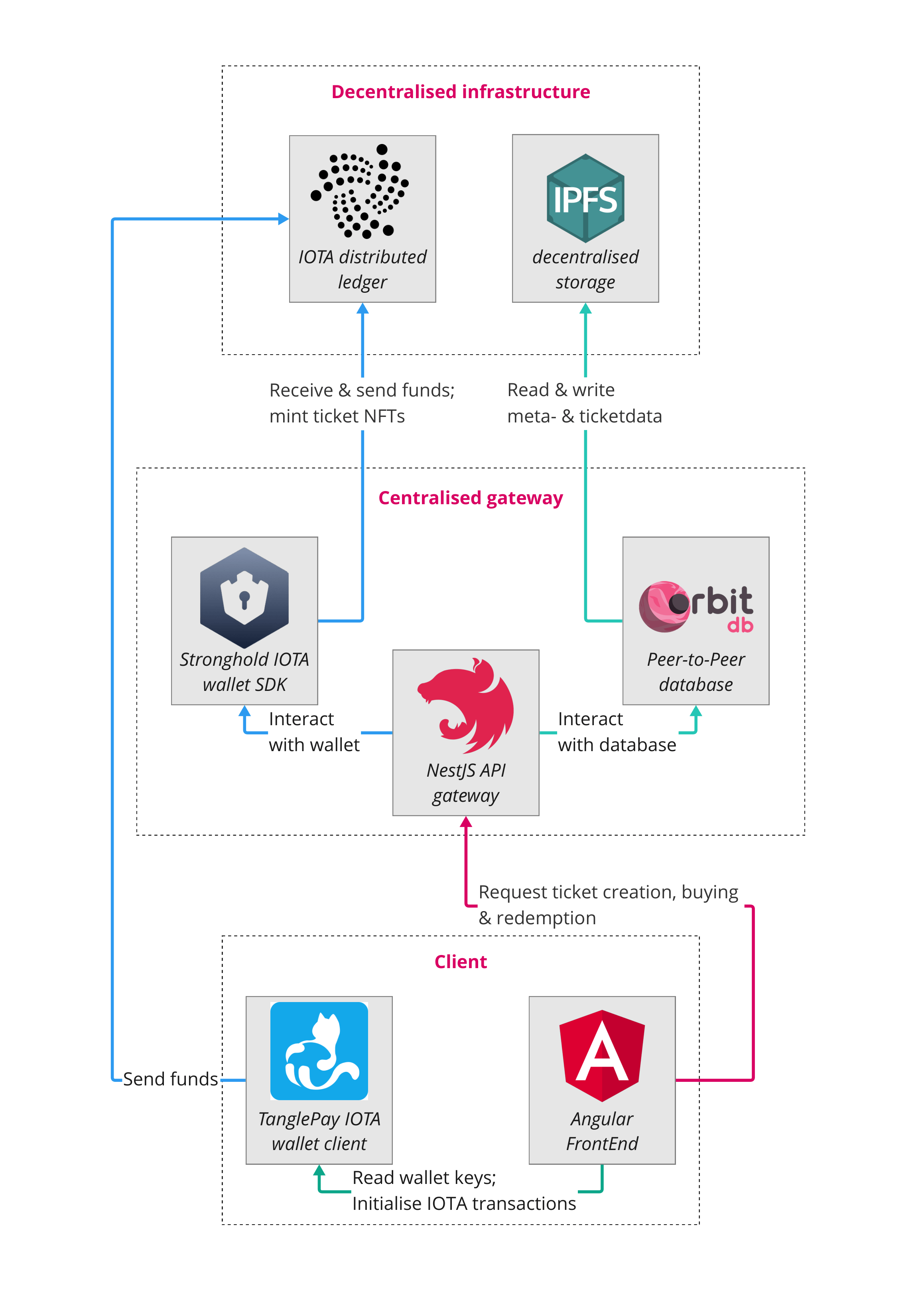
How it Works: Ticket Creation, Purchase, and Redemption
The process of creating, purchasing, and redeeming tickets is made easy and seamless through the collaboration of various components. The Angular client allows users to interact with the platform and perform actions like creating, buying, and redeeming tickets. A NestJS API manages a central wallet for transactions and interactions with the Shimmer Network and the OrbitDB.
To create or purchase a ticket, the client contacts the API gateway, which generates a new wallet address and sends it to the client. The client then sends the required funds through the distributed ledger. Once the funds arrive at the API wallet, the generated or transferred tickets are sent to the client’s wallet, completing the ticket creation and purchase process.
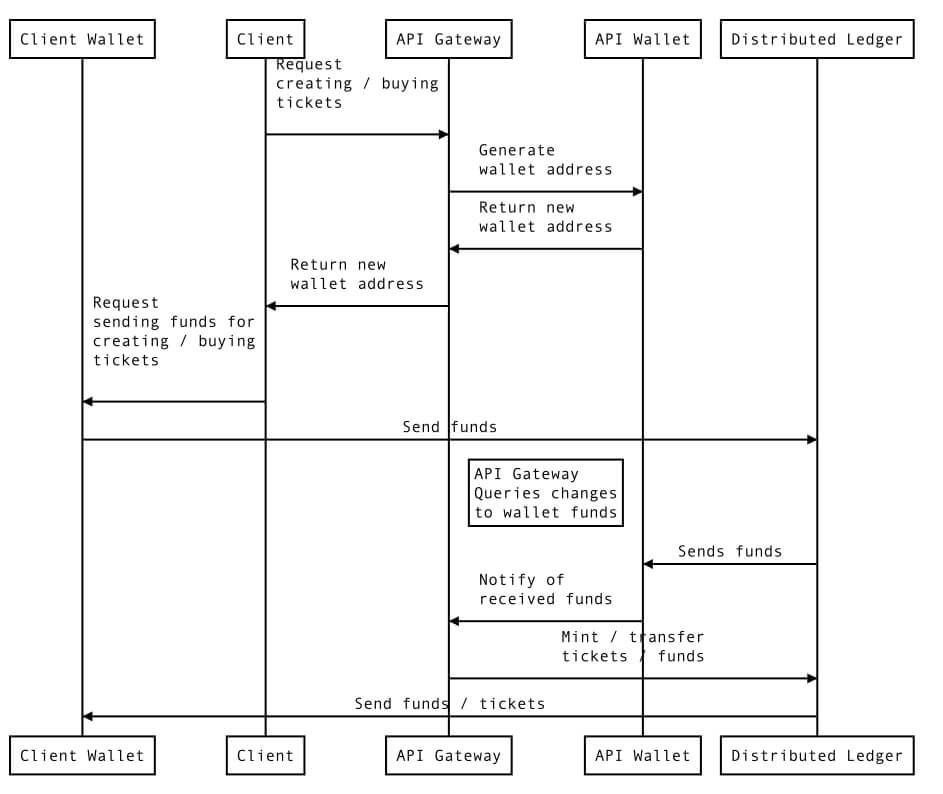
The ticket redemption process is equally straightforward. The client sends a ticket redemption request to the API Gateway, which checks the P2P database for a redemption entry. If the ticket has not been redeemed, the API Gateway generates a redemption token and sends it to the client. The client then signs the token with their private key and sends it back to the API Gateway, which verifies the information and marks the ticket as redeemed.
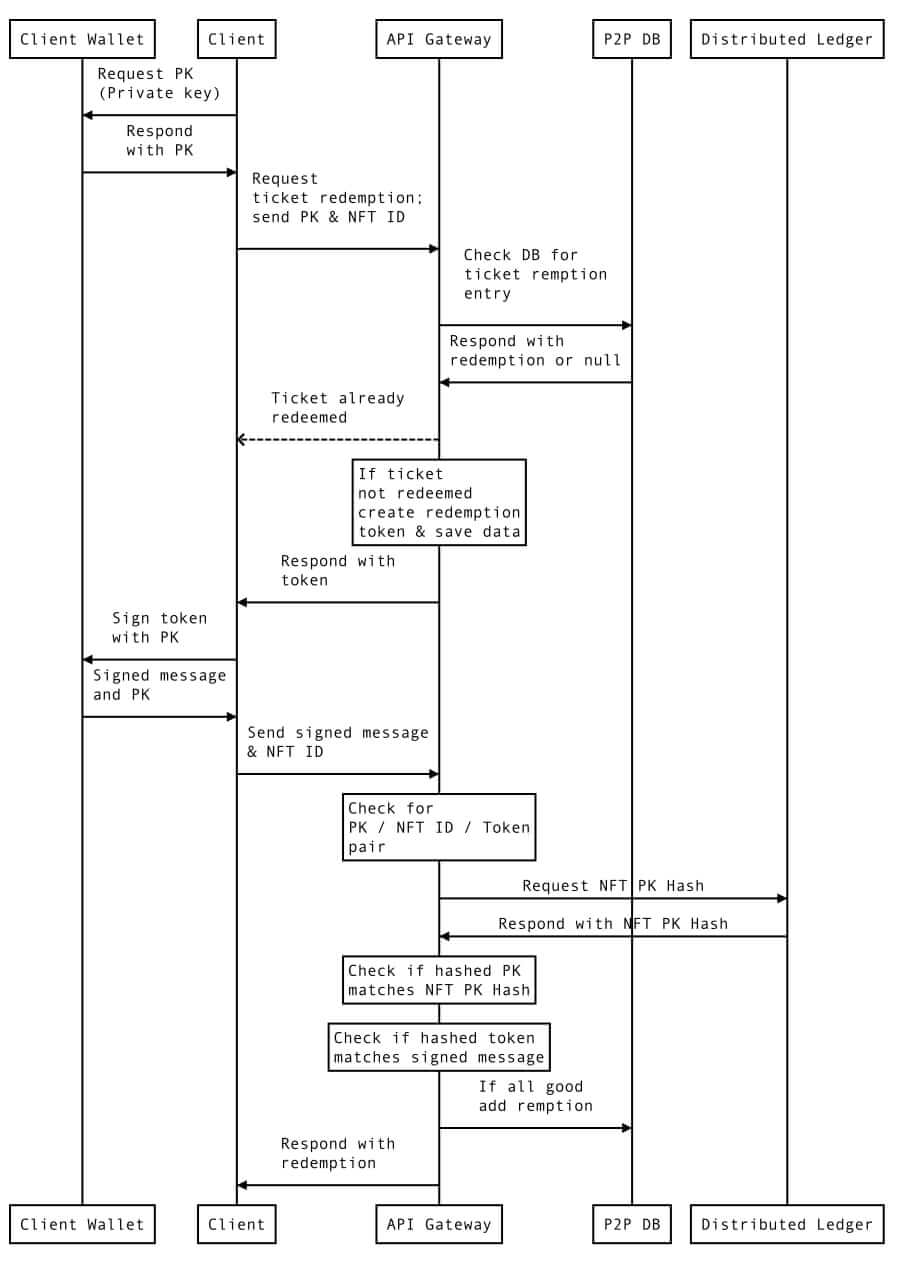
Demo Time! A Visual Guide to the Ticket Redemption Process
The ticket redemption process is designed to be user-friendly and secure. Below, we break down the steps with accompanying images to help you understand how the platform ensures a seamless experience.
Starting the Ticket Redemption Process: As shown below, users initiate the ticket redemption process by signing the redemption token created by the server, using their TanglePay Wallet.
![Sign the redemption token with the private wallet]()
Sign the redemption token with the private wallet Redeemable QR Code with Redemption Data: A redeemable QR code containing redemption data is displayed. Users utilise this QR code to redeem their tickets.
![Redeemable QR code with redemption data]()
Redeemable QR code with redemption data Ticket Validator Interface: The validator reads the QR code and verifies if the ticket is valid.
![Ticket validator interface]()
Ticket validator interface Successfully Redeemed Ticket: Lastly, we see a successfully redeemed ticket. The platform updates the ticket status and prevents any further use.

The demonstration of the decentralized ticketing platform showcases the functionality and security of the developed system. It offers a user-friendly interface while ensuring a secure and transparent management of tickets.
Outlook
Despite the progress made, there are still some central instances, such as the API Gateway, that could be decentralized in future developments. In the future, native Layer-1 assets could be processed on a Layer-2 EVM network. This would make it possible to further decentralize central instances and increase the security and scalability of the system.
Another issue is the lack of a stable coin immune to the exchange rate fluctuations of the balance tokens. The introduction of such a stable coin would help to increase user trust in the system and further promote the acceptance of the solution.
In many cases, monopolists have contracts with venues to ensure planning security. One way to make event organizers more independent of the platforms would be to use smart contracts to conclude such contracts directly between venues and artists. This would provide both organizers and artists with more flexibility, fairness, and independence.
Conclusion
This decentralized ticketing project, built upon IOTA’s Shimmer Network and leveraging modern technologies like IPFS-based OrbitDB, NestJS, and Angular, promises to increase transparency, fairness, and eliminate high fees in the ticketing process once it is launched. It’s time to say goodbye to ticket monopolists and welcome a new era of ticketing! 🎉

